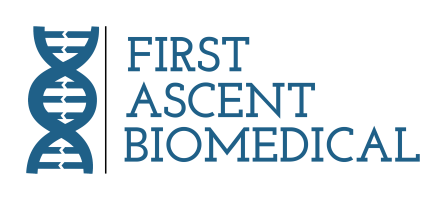Dr. Diana Azzam, Co-Founder of First Ascent Biomedical and Associate Professor at Florida International University (FIU), received a standing ovation at TEDxMiami: Beyond Boundaries after sharing a story that blended science, resilience, and hope.
Dr. Azzam spotlighted the transformative potential of Functional Precision Medicine (FPM)– a next-generation approach to cancer treatment that tests live tumor cells against hundreds of FDA-approved drug combinations, layered with explainable AI and genomics. This approach offers clinicians real-time, personalized insights to guide therapy selection.
Her TEDx talk centered around Logan, a young patient with relapsed leukemia who is now thriving—healthy, happy, and full of life—thanks to this precision-guided treatment. In a deeply moving moment, Logan’s parents were present in the audience, witnessing their son’s story being told as a symbol of what’s possible when innovation meets compassion.
This breakthrough was made possible through a mission-aligned collaboration that began right here in Miami:
- Florida International University (FIU) provided the academic and scientific leadership for the study, with research conducted in its cutting-edge translational oncology labs.
- The project was funded by the Live Like Bella® Childhood Cancer Foundation, whose dedication to finding better treatments for children with cancer fueled this important work.
- Nicklaus Children’s Hospital, where Logan received treatment, partnered with researchers to integrate these personalized findings into real-world pediatric cancer care.
“This partnership demonstrates what’s possible when research, philanthropy, and clinical care unite around a common goal—giving children a better chance at life,” said Dr. Diana Azzam. “Logan’s journey is a reminder that Functional Precision Medicine is not just a scientific advancement—it’s a deeply human one.”
The FPM platform, developed by First Ascent Biomedical in partnership with FIU, represents a paradigm shift in oncology. It moves beyond genomics alone and leverages real-time drug response data to match patients with the treatments most likely to help them.
